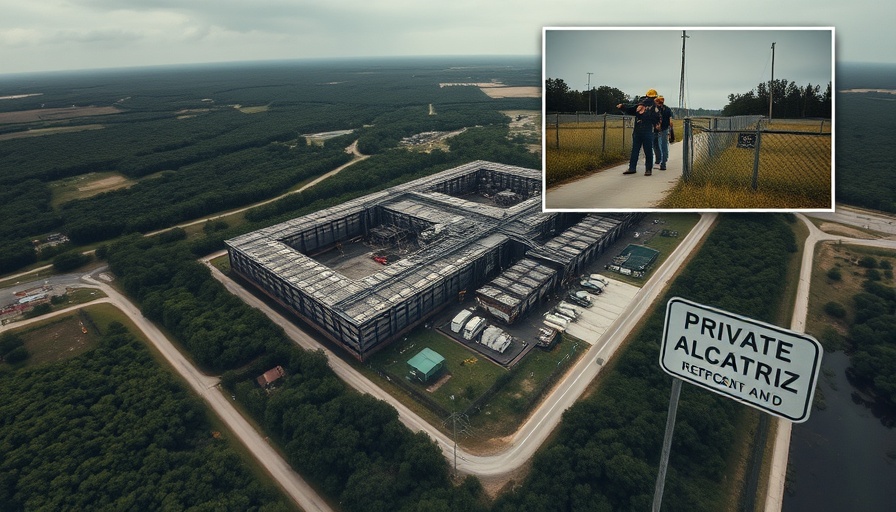
Federal Appeals Court Intervenes: A New Chapter for Alligator Alcatraz
In a surprising turn of events, a federal appeals court has stepped in to block a lower court's ruling that would have dismantled the controversial 'Alligator Alcatraz' migrant detention center in Florida. This decision comes at the intersection of immigration policy and environmental concerns, stirring conversations across the nation.
Understanding the Court's Ruling
On September 4, the 11th U.S. Circuit Court of Appeals issued a 2-1 ruling that halted a preliminary injunction from District Judge Kathleen Williams. Her order mandated Florida and the Trump administration to wind down operations at the swampland facility, built in record time on old Miami-Dade airport grounds. With the panel granting a stay of the injunction, Florida Republican Governor Ron DeSantis confirmed the facility remains operational, emphasizing the state’s continued focus on immigration enforcement.
A Political Landscape
The ruling not only reflects legal interpretations but highlights the ongoing political chess match surrounding immigration policy. Appointees from both former presidents Trump and Obama sit on the appeals court, illustrating the ideological divides that continue to shape U.S. policy. Judge Barbara Lagoa, echoing a sentiment that has become hallmark in modern American politics, indicated that the lower court’s ruling lacked clarity and seemed to impose undue burdens on the state and federal agencies.
The Voices on the Ground
The center has been the focus of numerous lawsuits, particularly from environmental groups and the Miccosukee Tribe of Indians. These organizations raised concerns about the ecological impacts of operating a detention facility in such a sensitive area. Judge Adalberto Jordan, dissenting in this case, pointed out that the majority ignored the significant evidence regarding the potential harm to both the environment and the tribe, which raises questions about the balance between immigration enforcement and environmental stewardship.
Alligator Alcatraz: A Broader Context
Opened amid strict immigration enforcement policies, Alligator Alcatraz is designated to hold thousands of detainees, and its operations reflect a drastic approach towards handling immigration in the U.S.
This week, as President Trump once again visited the facility, the symbolism became evident; efforts to bolster border security remain a central theme of the administration. The nickname 'Alligator Alcatraz' itself encapsulates the critiques leveled against this and similar detention centers: facilities designed to restrict freedom under the guise of policy enforcement.
Environmental Concerns and Community Impact
As Florida continues with plans for Alligator Alcatraz, environmental advocates are adamant that the ecological footprint of the facility cannot be overlooked. There are fears that housing migrants in tent structures could further strain local ecosystems.
Local communities are left divided, as some residents see economic and job opportunities within the detention sector, while others express deep concerns for the environment and the ethics of detaining individuals under harsh conditions.
Future Implications for Immigration and Policy
The appellate court's decision merely prolongs the existence of Alligator Alcatraz, but it sends ripples through the ongoing conversation about how the U.S. addresses immigration. As this case unfolds, and the environmental implications continue to surface, it’s essential for citizens and policymakers to engage in informed discussions about how best to balance enforcement with ethical governance.
Conclusion: The Path Forward
As the battle over Alligator Alcatraz continues in the court system, communities and policymakers alike will need to grapple with not only the legal ramifications but also the broader narrative of immigration and environmental conservation. While the appeals court ruling is a temporary win for the state and the Trump administration, it is vital for citizens to stay engaged and informed on the issue, as more developments are sure to arise in the coming months.
 Add Element
Add Element  Add Row
Add Row 



Write A Comment